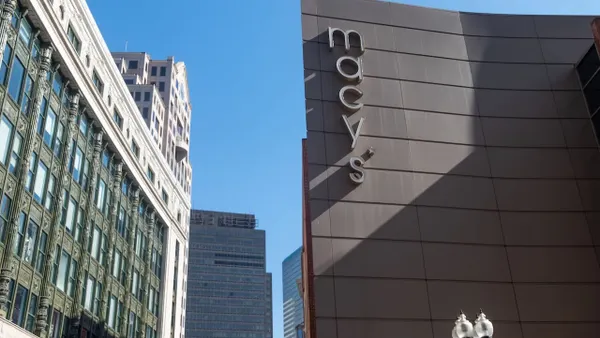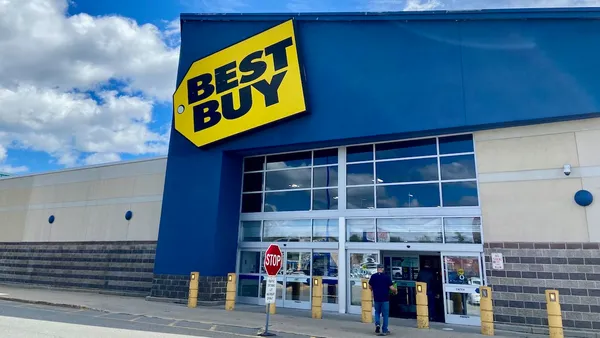Dive Brief:
- Former Barnes & Noble CEO Demos Parneros is suing the retailer for defamation and breach of contract, according to documents filed Tuesday in Manhattan federal court. Parneros alleges his firing was engineered by founder Leonard Riggio "without cause" and that his public statements on the issue have "falsely and irrevocably damaged" Parneros' reputation and 35-year career in retail. Parneros was terminated on July 3 for allegedly violating company policy, a claim Parneros denies.
- In a statement, Barnes & Noble described the lawsuit as "nothing but an attempt to extort money from the company by a CEO who was terminated for sexual harassment, bullying behavior and other violations of company policies after being in the role for approximately one year." The company also said the complaint is "replete with lies and mischaracterizations" about Riggio.
- According to Parneros' complaint, Barnes & Noble agreed in the spring of 2018 to sell itself to an unnamed book retailer, but the deal was ultimately withdrawn in June. In the aftermath of the failed deal, Parneros alleges in the documents that "Riggio became hostile to Parneros" and stopped returning his calls or texts. Parneros, who was not given severance, argues he is owed over $4 million in cash plus equity.
Dive Insight:
Dramatic executive shuffling is nothing new for Barnes & Noble. Parneros was the fourth CEO to be named in as many years. Without stable management, the bookseller has continued to spin its wheels on a turnaround plan.
In June, the company reported that total sales in the quarter had plummeted 4.3% to $786 million and 6% on the year to $3.7 billion. Net loss in the fourth quarter rose to $21 million, up from $13.4 million in the year-ago period. At the time, Parneros told analysts on a conference call that the company had laid the groundwork for its strategic turnaround, and that it was beginning to see "modest improvement in some areas," according to a transcript of the call from Seeking Alpha.
Parneros joined Barnes & Noble in 2016 as acting chief operating officer and was promoted in April 2017 after the abrupt departure of ex-CEO Ronald Boire. During his short tenure at the company, Parneros says he "laid the groundwork for better performance, including an expense reduction plan, a new store prototype, and a pipeline of new sales categories," according to the court documents.
The nature of Parneros' dismissal was detailed in the suit filed this week. On July 2, according to Parneros' complaint, Riggio read from a document that Parneros was being fired, without severance, for violating the sexual harassment policy, citing interactions with an executive assistant and mistreatment of CFO Allen Lindstrom. Regarding Lindstrom, Parneros said his treatment was appropriate given Lindstrom's poor performance.
According to the complaint, Riggio said that the executive assistant complained that Parneros described to her a hotel in Quebec where he had once stayed with his wife as "the kind of place where 'you would put out.'" Parneros denies the language used and according to the court documents said he had an "innocuous, less than five-minute conversation about vacationing in Quebec" with the executive assistant, which had been "positively resolved."
Despite the company's internal politics and outside competitive forces like Amazon, some argue it's still a business worth saving. According to the documents, the bookstore chain — the last of its kind since the demise of Borders — was an attractive buy for at least one company. The details of who that retailer is and why the deal fell apart are unclear, although Parneros argues in his complaint it had nothing to do with his leadership.
Following Parneros' departure this summer, Mike Edwards, former CEO of Borders, wrote in a Linkedin blog post that there's one question larger than who can lead the company: Will physical bookstores exist 10 years from today? "My answer is yes, and as proof, Amazon is opening brick and mortar stores," he wrote in July. Edwards' 15-step plan for success includes strategies like re-imagining its Starbucks Cafe experience, aggressively right-sizing its store network and providing digital tools to booksellers with perks.
But it all hinges on step number one: hire the right CEO.












